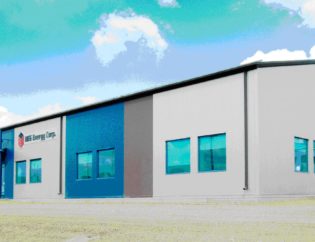
It is estimated that there are more than 13 million tons of waste from construction sites flowing into U.S. Landfills every year, making the construction industry one of the biggest culprits of unnecessary waste in the world. The impact of the construction industry on the environment can be staggering.
To give some perspective on the amount of waste, on average, here are some figures from the Environmental Protection Agency (EPA) in the United States: the average amount of waste a new building generates is approxmately 3.9 lbs of waste per sq. ft. of construction. On a project like our Canora Project, if it wasn’t build modular, but rather traditionally stick built, it would have created 88393.5l bs of waste, according to these numbers. For another perspective, a 50,000 lb building, the size of your average college residence hall, will produce over 190,000 lbs of waste!
Modular construction, on the other hand, uses an almost full-utilization of materials and comes with inherent resource efficiency, designed into the building process. This comes with the territory of modular construction, which is the culmination of repetitive units in controlled conditions, minimizing areas of extraneous waste for continuous improvement of procedure. Another way it minimizes waste, in complete opposition to conventional construction, is the lack of weather damage and on-site theft of materials.
With entire module units–almost entirely completed in factory-controlled conditions–being directly transported to the site, there is an inherent limit to the waste generated on-site. With this ability to work within a factory, tight inventory controls and project schedules move from a desirable goal to normal procedure.
According to a report published by the group WRAP (Waste & Resource Action Programme), by using off-site modular construction, we can start to eliminate unnecessary waste from construction sites around the world, and make our world a better place to live for all of us. Further, the US Green Building Council (USGBC) also recognized the advantages inherent in using modular construction, instead of conventional construction. In Begaluru, an Indian mega city with a population of over 10 million, Construction and Demolition (C&D) is their #1 source of pollution.
At the end of the day, we at Cormode & Dickson don’t just work in Alberta, but we live here, play here, and raise our families here. We want to use sustainable construction methods that will benefit all of us!
Interested in Modular? Download our “Smart Builders Guide To Modular.”







